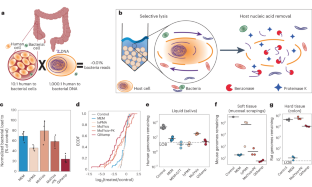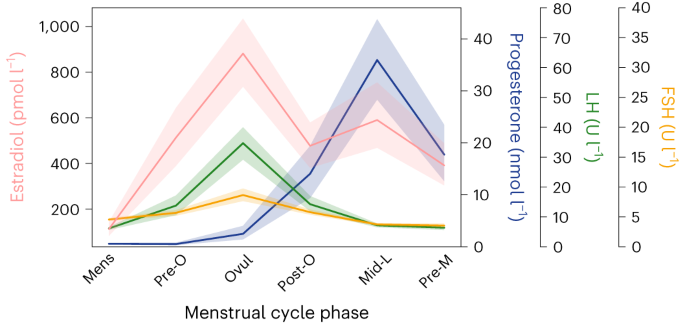2023-10-13 カリフォルニア工科大学(Caltech)
◆最近の研究では、腸内微生物とパーキンソン病、多発性硬化症、自閉症行動、不安行動、甘いものを過剰に摂取する傾向との関連が明らかにされました。
◆腸内微生物の役割を理解するために、腸内の微生物細胞を分離する効果的な方法が開発されました。この研究は、微生物のDNAシーケンス解析において有望な手法を提供し、腸内微生物と人間の健康の関連性を解明するのに役立つ可能性があります。
<関連情報>
- https://www.caltech.edu/about/news/new-method-for-assessing-microbiome-of-human-gut
- https://www.nature.com/articles/s41592-023-02025-4
微生物濃縮法により、宿主の豊富なサンプルからハイスループットなメタゲノム特性解析が可能になる Microbial-enrichment method enables high-throughput metagenomic characterization from host-rich samples
Natalie J. Wu-Woods,Jacob T. Barlow,Florian Trigodet,Dustin G. Shaw,Anna E. Romano,Bana Jabri,A. Murat Eren & Rustem F. Ismagilov
Nature Methods Published:12 October 2023
DOI:https://doi.org/10.1038/s41592-023-02025-4

Abstract
Host–microbe interactions have been linked to health and disease states through the use of microbial taxonomic profiling, mostly via 16S ribosomal RNA gene sequencing. However, many mechanistic insights remain elusive, in part because studying the genomes of microbes associated with mammalian tissue is difficult due to the high ratio of host to microbial DNA in such samples. Here we describe a microbial-enrichment method (MEM), which we demonstrate on a wide range of sample types, including saliva, stool, intestinal scrapings, and intestinal mucosal biopsies. MEM enabled high-throughput characterization of microbial metagenomes from human intestinal biopsies by reducing host DNA more than 1,000-fold with minimal microbial community changes (roughly 90% of taxa had no significant differences between MEM-treated and untreated control groups). Shotgun sequencing of MEM-treated human intestinal biopsies enabled characterization of both high- and low-abundance microbial taxa, pathways and genes longitudinally along the gastrointestinal tract. We report the construction of metagenome-assembled genomes directly from human intestinal biopsies for bacteria and archaea at relative abundances as low as 1%. Analysis of metagenome-assembled genomes reveals distinct subpopulation structures between the small and large intestine for some taxa. MEM opens a path for the microbiome field to acquire deeper insights into host–microbe interactions by enabling in-depth characterization of host-tissue-associated microbial communities.

